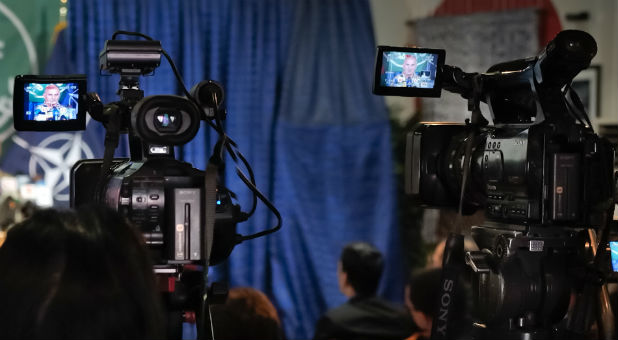The One Thing Standing in the Way of Uniting America
Many are saying the recent election was the most polarizing in American history. Although it can be argued that numerous elections throughout the history of our country have been remarkably nasty, there’s one element today that will make it more difficult than ever (maybe impossible) to unify this country:
The news media.
Never in our history have we seen a more unrelenting, brutal and partisan news industry, and the Internet and the massive numerical growth of TV channels is behind it. Think of it this way—with more competition between 24/7 news networks like CNN, Fox News, MSNBC and all the others, including entries from Russia, Japan and the Arab world (which are now on a growing number of U.S. cable networks), the drive to compete is intense.
Controversy and conflict attracts viewers, so it’s no surprise that news programs today are blowing issues way out of proportion in order to make an impact. This week a friend was in Washington, D.C. and sent me a text message that about 35 people, upset about the election results, were protesting outside the White House. But once the story made it to most news networks, you’d have thought the White House was about to be burned to the ground.
The credibility of the news media continues to drop, and with good reason. So what do we do? I’m not anti-media—in fact, my M.A. is in Journalism. I love the business, but the truth is, it isn’t going to change soon, because the business model is simply broken. Honesty and clarity have given way to the controversial and provocative in a relentless effort to keep ratings up. The problem is, most people today—especially younger adults—don’t take the time to investigate the issues. As a result, they’re captive to the social media memes, blogs and rants from who knows where.
So what should we do? Here are a few suggestions:
1. Understand off the top that certain news outlets are highly partisan. Some would say all media outlets are partisan by nature, but we should at least know the playing field. For instance, The New York Times and MSNBC might as well be the in-house media outlets for the Democratic party. Fox News is rooting for the right. I could go down the list, but you get the picture. When you hear a story, vet the source.
2. Make sure you get your information from reliable sources—preferably multiple reliable sources. With the explosion of blogs and social media, everyone is an expert these days, and everyone (credible or not) has an opinion. Make sure you listen to people who know what they’re talking about. And if you’re not sure, check sites like Snopes.com that try to sort it all out. And for the record—most of the supposed fact-checker websites are highly partisan as well.
3. Become a natural skeptic. I hate saying that, because I want to believe everyone. But with so many competing voices out there, we need to develop a skeptical nature. Push back. Ask questions. Don’t be embarrassed. Find the truth.
4. Teach your children how to evaluate what they hear from the media. I worry about a generation growing up getting news from social media. Facebook is currently under fire for slanting its posts during the election. I was filming a project in Washington, D.C. last week across from Farragut Square. During a break, we watched about 20 young people staging a somewhat lame protest against Donald Trump. All white, well-dressed and young, they looked as though they were trying way too hard to appear relevant, and their signs looked as though their mothers helped make them. I asked one why they were protesting, and he said the new president was “going to lock up Muslims, deprive all of us of our rights and destroy America.” I asked him on what information he based that premise.
He just stared at me.
I’m not a Donald Trump fan, but you have to admit, the hysteria has gotten way out of hand, and ignorance of the issues amplified by social media is a big part of the problem.
5. Finally, don’t pass on social media statements if you can’t be sure they’re accurate. Start the habit of vetting your sources and question friends who post what you know is false. If we don’t all start educating and challenging each other, we’ll forever be at the mercy of news platforms that spend more time growing their audience than reporting actual news.
At one time, Walter Cronkite, television anchor of CBS News, was the “most trusted man in America.”
Those days are gone. {eoa}
An internationally known writer and speaker, Phil Cooke has produced media programming in nearly 50 countries around the world.




























































